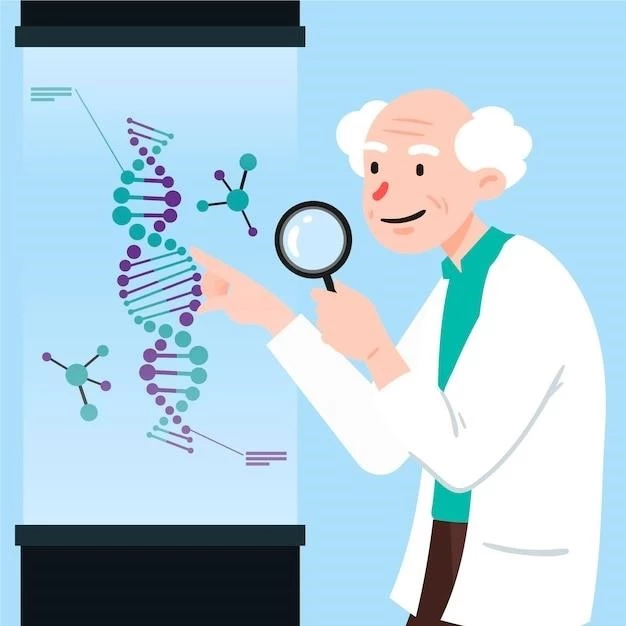Introduction to Qazi-Markouizos Syndrome
Qazi-Markouizos syndrome‚ also known as Dysharmonic skeletal maturation-muscular fiber disproportion syndrome‚ is a rare genetic disorder characterized by non-progressive central hypotonia‚ severe psychomotor delay‚ and intellectual disability.
Overview of the Rare Genetic Disorder
Qazi-Markouizos Syndrome‚ also known as Dysharmonic skeletal maturation-muscular fiber disproportion syndrome‚ is a rare genetic disorder characterized by non-progressive central hypotonia‚ severe psychomotor delay‚ intellectual disability‚ chronic constipation‚ and distinctive dermatoglyphics. Individuals with this syndrome may also exhibit delayed and dysharmonic skeletal maturation‚ increased proportion of type 2 muscle fibers‚ and seizures. Qazi-Markouizos Syndrome is caused by genetic mutations and involves a combination of unique features that distinguish it from other disorders.
Clinical Features of Qazi-Markouizos Syndrome
Qazi-Markouizos Syndrome presents with characteristics such as central hypotonia‚ severe psychomotor delay‚ intellectual disability‚ chronic constipation‚ distinct dermatoglyphics‚ delayed skeletal maturation‚ and disproportionate muscle fibers. Seizures and abnormal electroencephalograms can also occur.
Characteristic Symptoms and Manifestations
Qazi-Markouizos Syndrome is characterized by non-progressive central hypotonia‚ severe psychomotor delay‚ intellectual disability‚ chronic constipation‚ distinctive dermatoglyphics‚ delayed and dysharmonic skeletal maturation‚ as well as an increased proportion of type 2 muscle fibers with possible seizures and abnormal electroencephalograms.
Physical and Intellectual Disabilities Associated with the Syndrome
Qazi-Markouizos Syndrome is marked by physical and intellectual disabilities including non-progressive central hypotonia‚ severe psychomotor delay‚ intellectual disability‚ chronic constipation‚ distinct dermatoglyphics‚ delayed and dysharmonic skeletal maturation‚ and an increased proportion of type 2 muscle fibers. Seizures and abnormal electroencephalograms are also potential features of this syndrome.
Diagnosis and Genetic Causes
Qazi-Markouizos Syndrome is diagnosed based on clinical features such as non-progressive central hypotonia‚ severe psychomotor delay‚ intellectual disability‚ chronic constipation‚ distinct dermatoglyphics‚ delayed skeletal maturation‚ and disproportionate muscle fibers. This rare genetic disorder is linked to specific genetic mutations that play a crucial role in its development‚ either inherited or occurring spontaneously.
Identification of Qazi-Markouizos Syndrome
Qazi-Markouizos Syndrome can typically be identified based on clinical manifestations such as non-progressive central hypotonia‚ severe psychomotor delay‚ intellectual disability‚ chronic constipation‚ distinct dermatoglyphics‚ delayed skeletal maturation‚ disproportionate muscle fibers‚ and potential seizures. In addition‚ the syndrome has been reported in a small number of individuals‚ highlighting its rarity and distinct features.
Role of Genetic Mutations in the Development of the Syndrome
Qazi-Markouizos Syndrome is attributed to genetic mutations‚ either inherited or occurring spontaneously‚ that lead to the distinct clinical features observed in affected individuals. These mutations play a pivotal role in the development and manifestation of the syndrome‚ impacting various aspects such as muscle fiber proportions‚ skeletal maturation‚ and neurological symptoms.

Management and Treatment Approaches
Management of Qazi-Markouizos Syndrome involves addressing symptoms such as hypotonia‚ psychomotor delay‚ intellectual disability‚ chronic constipation‚ and unusual dermatoglyphics. Treatment aims to improve quality of life and may include physical therapy‚ educational support‚ dietary adjustments‚ and symptom-specific interventions.
Current Approaches to Treating Qazi-Markouizos Syndrome
Management of Qazi-Markouizos Syndrome typically involves addressing symptoms such as hypotonia‚ psychomotor delay‚ intellectual disability‚ chronic constipation‚ and unique dermatoglyphics. Current treatment strategies focus on a multidisciplinary approach including physical therapy‚ educational support‚ dietary modifications‚ and targeted interventions to improve specific symptoms and overall quality of life for affected individuals.
Therapies Aimed at Alleviating Symptoms and Improving Quality of Life
Therapeutic interventions for Qazi-Markouizos Syndrome focus on alleviating symptoms such as hypotonia‚ psychomotor delay‚ intellectual disability‚ chronic constipation‚ and unique dermatoglyphics. Treatment strategies aim to improve the quality of life for affected individuals through a combination of physical therapy‚ educational support‚ nutritional adjustments‚ and targeted interventions tailored to address specific symptoms and enhance overall well-being.
Research and Studies on Qazi-Markouizos Syndrome
Research on Qazi-Markouizos Syndrome focuses on understanding the genetic mutations involved in its development‚ identifying characteristic clinical features‚ and exploring treatment options to improve the quality of life for individuals affected by this rare genetic disorder.
Investigations into the Molecular Mechanisms of the Syndrome
Research on Qazi-Markouizos Syndrome focuses on elucidating the genetic mutations responsible for its development‚ understanding the unique clinical features associated with the syndrome‚ and examining potential therapeutic interventions to enhance the quality of life for individuals affected by this rare genetic disorder. Studies delve into the molecular mechanisms underlying the syndrome‚ including the role of specific genetic mutations in shaping its distinct phenotypic characteristics.
Recent Findings and Advancements in Understanding the Disorder
Recent research on Qazi-Markouizos Syndrome has focused on identifying the specific genetic mutations responsible for its development‚ elucidating characteristic clinical features‚ and exploring novel treatment approaches to enhance the quality of life for individuals affected by this rare genetic disorder. Advances in understanding the molecular mechanisms contributing to the syndrome’s unique features pave the way for potential targeted therapies and improved management strategies.

Support and Resources for Individuals with Qazi-Markouizos Syndrome
When seeking support for Qazi-Markouizos Syndrome‚ individuals can access community groups‚ advocacy organizations‚ and healthcare providers specializing in managing this rare genetic disorder. These resources offer guidance‚ information‚ and assistance to improve the quality of life for affected individuals and their families.
Community Groups and Advocacy Organizations
Community groups and advocacy organizations play a crucial role in supporting individuals with Qazi-Markouizos Syndrome. These groups provide a platform for sharing experiences‚ accessing information‚ and offering emotional support to individuals and families affected by this rare genetic disorder. By connecting with these organizations‚ individuals can find a sense of community‚ valuable resources‚ and a supportive network to navigate the challenges associated with the syndrome;
Healthcare Providers and Specialists Involved in Managing the Syndrome
Specialists and healthcare providers involved in managing Qazi-Markouizos Syndrome include geneticists‚ pediatric neurologists‚ developmental pediatricians‚ physical therapists‚ occupational therapists‚ speech therapists‚ and gastroenterologists. These professionals collaborate to provide comprehensive care addressing the physical‚ cognitive‚ and developmental aspects of individuals with this rare genetic disorder‚ contributing to optimized management and improved quality of life.
Prognosis and Outlook for Patients
Individuals diagnosed with Qazi-Markouizos Syndrome may face challenges associated with physical symptoms‚ intellectual disabilities‚ and unique characteristics. Understanding the prognosis and life expectancy for patients with this rare genetic disorder is essential for tailored care and support to optimize their quality of life.
Long-Term Prognosis and Life Expectancy
In individuals with Qazi-Markouizos Syndrome‚ the long-term prognosis and life expectancy are influenced by the severity of symptoms such as central hypotonia‚ intellectual disability‚ and muscle fiber abnormalities. Understanding these factors is crucial for providing appropriate care and support to enhance the quality of life for patients with this rare genetic disorder.
Challenges and Considerations for Individuals Living with Qazi-Markouizos Syndrome
Living with Qazi-Markouizos Syndrome presents challenges related to non-progressive central hypotonia‚ severe intellectual disability‚ abnormal dermatoglyphics‚ and delayed skeletal maturation. Individuals may face difficulties with motor skills‚ cognitive development‚ and gastroenterological issues‚ requiring tailored support and interventions to enhance their quality of life.
